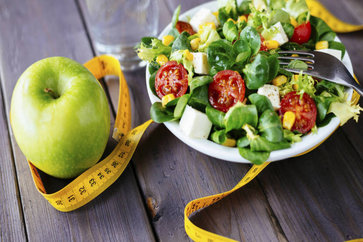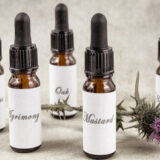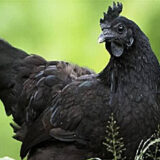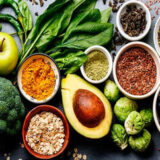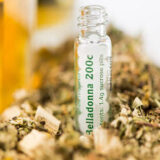Simple Health Tips – How To Be A Healthy Woman?
Maintaining a healthy lifestyle in the modern era can present challenges. The fast-paced nature of life and unhealthy eating habits have had a concerning impact on people’s well-being, particularly women.
However, adopting a healthy lifestyle is achievable with the right routine, self-control, and discipline. These factors can significantly contribute to promoting health and fitness in your daily life.
Outlined below are specific health tips for women that encompass what you should incorporate into your routine, what you should avoid, and what can facilitate a more manageable lifestyle:
1. Observe your flow
The flow changes in quantity and consistency during the menstrual cycle. It is usually whitish and has a neutral odor. If you notice that it changes color or gives off a bad smell, or if it is more abundant, and if it is accompanied by other symptoms such as irritation, consult your gynecologist because it could be an infection and, as such, it should be treated.
1. Make sure to fight against cystitis
Proper nutrition helps prevent the onset of cystitis. To avoid it, you should have a very diuretic diet with foods rich in water that provide vitamins necessary to strengthen the immune system. Blueberries are especially recommended as they contain anthocyanins. Some food rich in anthocyanins are blueberries, blackberries, cranberries, cherries, grape juice, eggplant, prunes, plums, raisins, red apples, red wines, red onions, red beans, red beets, red or purple grapes, red pears, strawberries, etc.
2. Keep a watch on the size of your bra
In research, it was found that generally, more than 70% of women wear an inadequate bra size, especially a cup. Not using the corresponding size can cause discomfort, pain, and even hardening which can be mistaken for tumors.
3. Keep premenstrual syndrome normal
It has been found that PMS gets worse due to unhealthy diets like cheese, olives, chips, Pickles, and other salty foods can lead to water retention and even bloating. Essential fatty acids have been shown to be very effective against PMS discomfort. You find them in bluefish and nuts. Some fatty acids foods listed is seafood such as mackerel, salmon, herring, sardines, and tuna, and nuts and seeds such as walnuts, chia seeds, flaxseed, and Plant oils such as canola oil, soybean oil, and flaxseed oil.
4. Avoid tobacco if you take the pill
The use of oral contraceptives associated with tobacco use multiplies the risk of thrombophlebitis, pulmonary embolism, acute myocardial infarction, and stroke. For this reason, doctors advise not to use oral contraceptives, especially tobacco.
5. Say no to constipation
It has been found that 20% of a woman suffers from constipation is due to a lack of fiber diet. To avoid this, follow a healthy diet rich in fiber. To achieve the recommended 35g a day, incorporate fruit in your breakfast and main meals (such as kiwi) and opt for whole foods whenever possible. Seeds, such as flax, poppy, or sesame, are also a great source of fiber.
6. Avoid hot foods
Eating hot food can also get PMS worse. If eaten in such a situation isoflavones-rich foods such as chickpeas, soybeans, peanuts, pistachios, fava beans, and other fruits and nuts contain isoflavones, which prevent and alleviate hot flashes. Drinking little alcohol and coffee also helps.
7. Avoid retention by drinking more water
Fluid retention is one of the most frequent problems in women. Although it seems strange, drinking water eliminates liquids and with them, the toxins accumulated through the excretory system (kidneys and sweat, fundamentally).
8. Eat foods to eliminate liquids
In addition to drinking water, take food with purifying properties that help you eliminate toxins and liquids. For example cherries, watermelon, zucchini, celery, etc.
9. Foods with high GI promote breast cancer
So be careful while eating food rich in GI, according to a study by in US National Library of Medicine, it was found that foods with a high glycemic index such as (potatoes, bread, and cooked carrot) increase the chances of developing breast cancer since a high glycemic load favors the appearance of tumor cells.
10. Keep a watch on iodine for thyroid
According to the WHO, it is essential that women take 150 micrograms of iodine daily, to maintain the proper functioning of the thyroid gland. Its lack can cause a metabolic problem in the thyroid. To fulfill a lack of iodine seafood such as cod and tuna, shrimp, seaweed, and other dairy food, which are generally rich in iodine are yogurt, milk, cheese, etc. other products of grains like cereals, the bread which are the major sources of iodine.
11. Get alert to stroke symptoms
Stroke is the leading cause of death in women over 65 years. It is a set of diseases that affect the blood vessels that supply blood to the brain. Pay attention to these symptoms that appear suddenly: muscle weakness, difficulty on one side of the face to speak, vision problems, and the arm and leg on the same side do not have the strength to remain elevated.
12. Medicines don’t work the same for us
Medicines can work differently in women and men because chemical processes and hormones are not the same. Always consult your doctor and avoid self-medication.
13. Is it menopause?
When menopause is near, menstrual cycles are disrupted. Hot flashes or reddening of the skin occur accompanied by heat and in some cases, mood swings, tiredness, and irritability also appear. Pay attention to these symptoms and changes to be able to identify them.
14. Tired and irritable is a sign of a lack of iron
Men need 8 mg a day while women require up to 18 mg to make up for what they lose during menstruation. To avoid deficiencies -which cause fatigue, tiredness, and lack of concentration- take foods that have iron such as lean red meat, cockles, chocolate, clams, lentils, or almonds.
15. Diabetes exercise
A study shows that a healthier life, losing 7% weight, and doing at least 150 minutes of exercise a week, could reduce the rate of diabetes onset by 34% in 10 years.
16. A balanced diet for your heart
During menopause, estrogen decreases, causing a woman’s cardiovascular system to respond differently to excess fat, sometimes generating a lot of cholesterol. Therefore, a diet rich in fruit, vegetables, fish, eggs, nuts, and low-fat dairy must be followed.
17. Keep bones strong
In This, mineral contributes a lot to bone health and prevents osteoporosis. In adulthood, we need 1,000 mg/day, but during menopause, we need 1,500 mg/day because it is not assimilated as well. To strengthen your bones, take at least two more dairy products a day. Good sources of calcium are milk, cheese, yogurt, and fish with edible bones (for example, sardines).
If all these rules are followed you will find that almost half of the new cases will die. This figure could be helpfully reduced if more cases are detected in time. With a colonoscopy from the age of 50, it is enough to discover possible polyps and remove them so that in the long run they do not turn into tumors.


